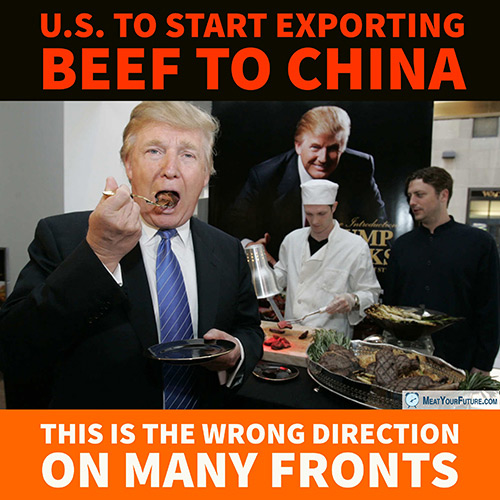
|
A new trade deal was announced last week to allow U.S. beef exports to flow into China, while opening the U.S. market for Chinese cooked chicken imports. Thirteen years ago, beef imports from the U.S. were banned when the first American case of bovine spongiform encephalitis (mad cow disease) was discovered. But now, the U.S. beef industry is excited about resuming exports to such a large and growing market. Overall, beef imports into China are projected to hit 950,000 metric tons this year, up a whopping 17% from 2016. That is an enormous increase in just one year. All of this is profoundly unsettling. While there is a broad consensus that animal agriculture is grossly unsustainable to feed our growing human population and devastating to the environment, the global consumption of animal foods is rapidly and dramatically going up (not down), with the United Nations projecting a substantial increase in the amount of beef, dairy, pig, and poultry consumption in the next 10 years alone. This is being driven by changing dietary preferences in developing counties that are more and more beginning to mirror Western diets, and our overall increasing human population. All of this is the wrong direction on so many fronts. In addition to the countless billions of sentient animals who are horribly treated and killed every year for foods that no one biologically needs for health, adequately addressing the most dire environment challenges of our time while ensuring global food security requires an urgent global shift in the exact opposite direction — away from animal foods. But how can we turn this trend around? Let’s all re-double our efforts to do whatever we can to both educate ourselves and others on the profound ethical, health and environmental implications of our society’s use of animals. In addition, supporting poverty alleviation, education, women’s rights, and family planning around the world is also urgently needed to help slow our human population growth. |